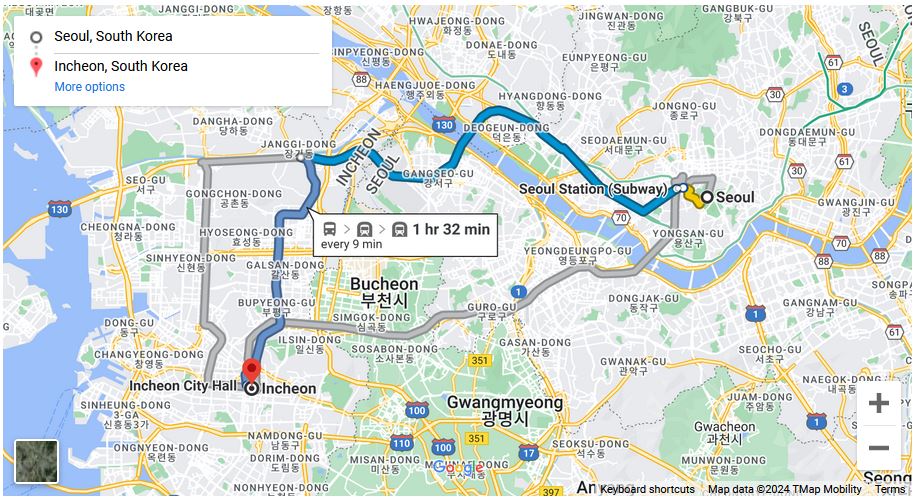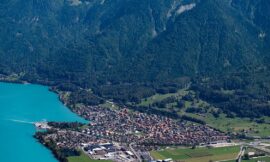The journey from Seoul to Incheon unfolds as a seamless transition from the heart of South Korea’s bustling capital to the strategic port city that serves as a gateway to the world. The distance between Seoul and Incheon is relatively short, and the connection between these two cities plays a pivotal role in the economic and cultural landscape of the region.
As travelers leave Seoul, a city synonymous with dynamic urban life and rich historical landmarks, they find themselves on a well-connected transportation network that facilitates the smooth transition to Incheon. The journey may involve a short drive, bus ride, or a convenient trip on the Incheon-bound subway line, providing an opportunity for commuters and visitors alike to witness the changing landscapes from the vibrant streets of Seoul to the more open vistas leading to Incheon.
One of the first landmarks that signal the proximity to Incheon is the Incheon International Airport, a global aviation hub renowned for its modern facilities and efficiency. The airport stands as a testament to Incheon’s strategic importance in international trade and transportation. For many, the journey to Incheon may commence or conclude at this sprawling facility, connecting South Korea with cities around the globe.
Incheon, situated on the northwest coast of the Korean Peninsula, boasts a unique blend of historical charm and modern infrastructure. The city’s Chinatown, one of the largest in the world, beckons travelers to explore its vibrant streets adorned with traditional Chinese architecture, colorful decorations, and a plethora of shops and restaurants. Incheon’s Chinatown serves as a cultural crossroads, reflecting the historical ties and exchanges between China and Korea.
The city’s coastal areas offer panoramic views of the Yellow Sea, providing a sense of the maritime significance that has defined Incheon’s history. The Incheon Grand Bridge, an architectural marvel that connects Yeongjong Island to the mainland, stands as both a gateway to the city and a symbol of its connectivity.
Beyond its role as a transportation hub, Incheon is a city with a rich cultural heritage. Wolmido, an island located just off the coast, offers a recreational escape for locals and visitors alike. The island is adorned with amusement parks, gardens, and waterfront attractions, creating a leisurely atmosphere that contrasts with the energetic pace of Seoul.
The Songdo International Business District, a modern urban development within Incheon, showcases the city’s commitment to innovation and sustainability. The district features cutting-edge architecture, green spaces, and smart city technologies, positioning Incheon as a hub for business, technology, and international conferences.
Incheon’s historical legacy is palpable at places like the Incheon Landing Operation Memorial Hall, commemorating the pivotal Incheon Landing during the Korean War. The memorial serves as a reminder of Incheon’s role in shaping the course of history and its significance in the defense of South Korea.
The journey from Seoul to Incheon encapsulates the essence of South Korea’s multifaceted identity. The transition from the dynamic urban landscape of Seoul to the maritime and cultural richness of Incheon is a testament to the country’s ability to seamlessly blend tradition and modernity. Whether arriving by air through Incheon International Airport or exploring the city’s vibrant streets and historical sites, travelers find themselves in a city that stands as a pivotal link between South Korea and the world, embodying the nation’s spirit of connectivity and progress.



